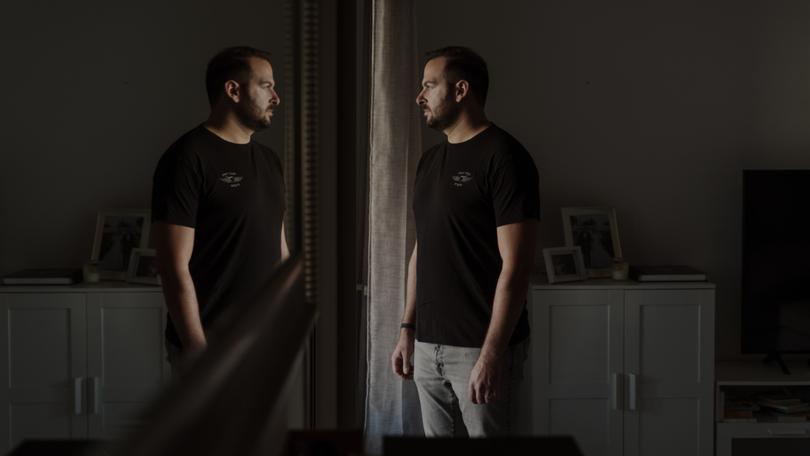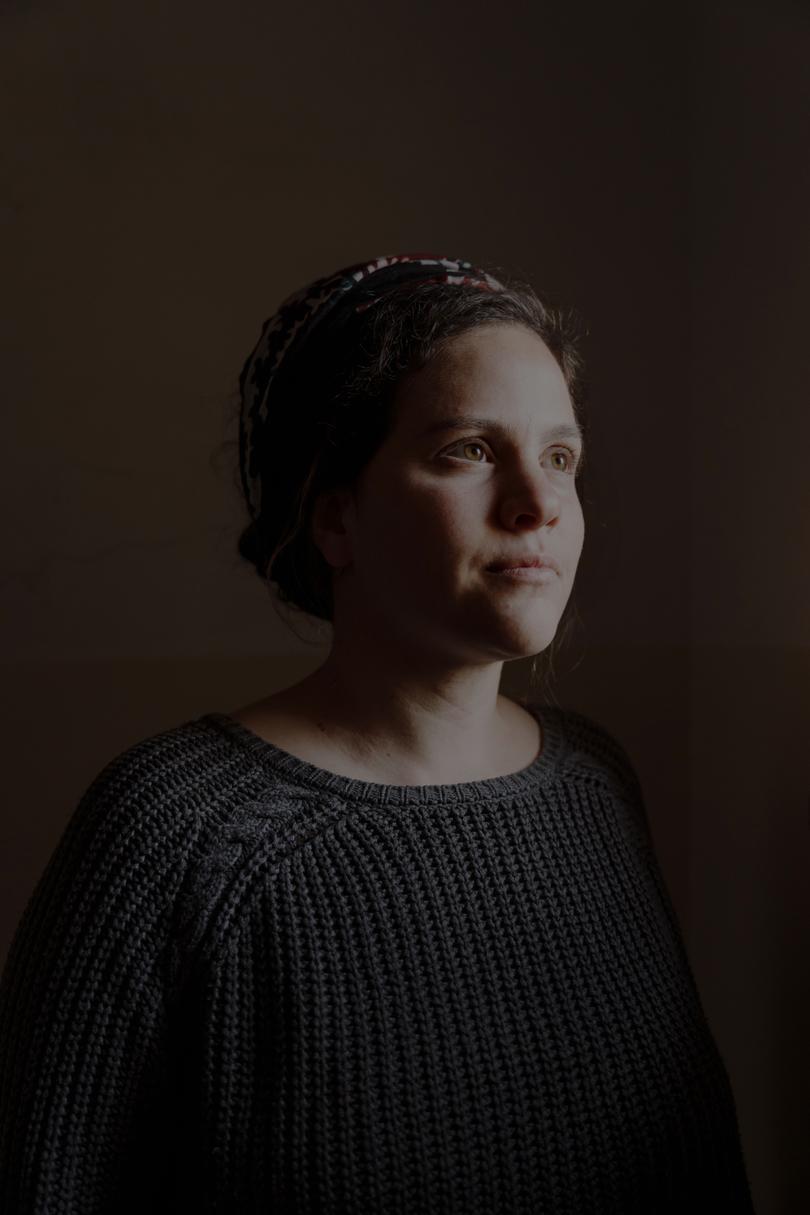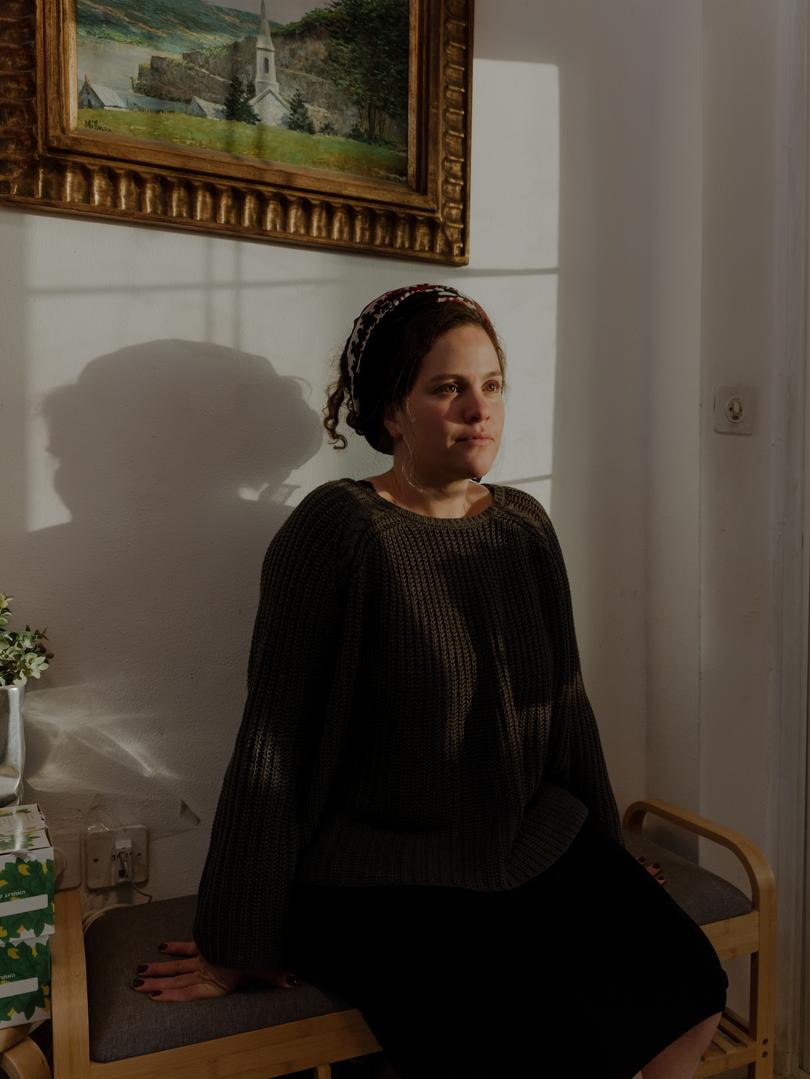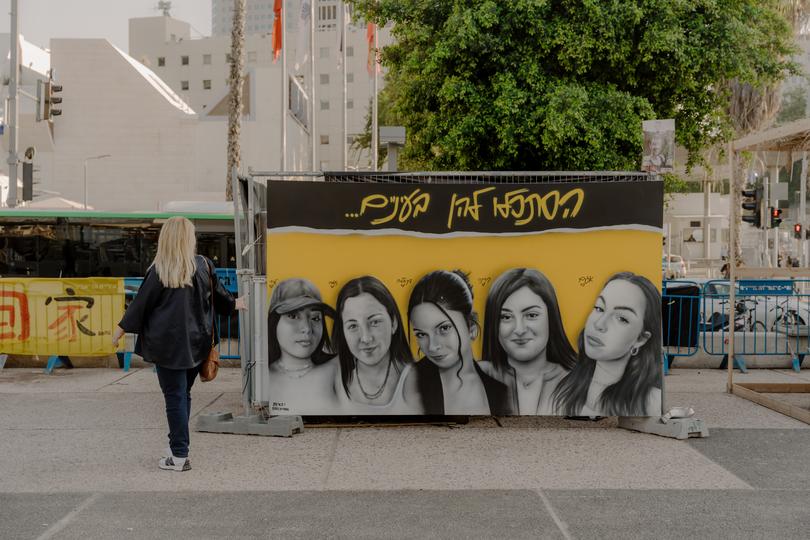THE WASHINGTON POST: War fatigue deepens in Israel as deaths mount and fighting expands

TEL AVIV - Ari Krauss, a reservist in the Israeli military’s elite Golani Brigade, said he spent his days inside Gaza exploding underground tunnels. At night, he recalled, he would join the other fathers in uniform on a sandy hill, trying to get enough cellphone bars to FaceTime his infant daughter.
His day job seemed like a distant memory. Early in the war, the brigade sent a letter to his company apologizing for drafting him but committing to no date for his full return. Being a soldier, the letter made clear, was now his main calling.
“Once upon a time, I had my high-tech career and my family life, and I had to strike the balance,” said Krauss, who spent four months battling Hamas militants in Gaza and is preparing to return next month. “Now I have to enter into that equation the fact that I am disappearing for weeks, or months, on end.”
Sign up to The Nightly's newsletters.
Get the first look at the digital newspaper, curated daily stories and breaking headlines delivered to your inbox.
By continuing you agree to our Terms and Privacy Policy.Krauss’s dilemma, or some version of it, is shared by some 80,000 Israeli reservists who are planning to leave, or have already left, families, jobs and studies to serve on the front lines of Israel’s grinding wars in Gaza and Lebanon. Increasingly, some are choosing not to report for duty, putting further strain on an overextended military amid an ever-widening regional war.
Nadav Shoshani, a spokesman for the Israel Defense Forces, said in a briefing last week that the army’s enlistment numbers are down by about 15 percent since the period after the Oct. 7, 2023, attacks, when hundreds of thousands of Israelis from all walks of life reported to fight, many without being summoned.

Historically, the country has maintained a small standing army, relying on reservists to fill out its ranks during a series of short-lived wars. But the Hamas-led rampage across southern Israel, in which about 1,200 people were killed and some 250 taken hostage, thrust Israel into the longest conflict in its history. In the early months of the war, about 350,000 Israelis were called up, a staggering figure in a country of less than 10 million.
The losses, too, have been unprecedented. More than 800 soldiers have been killed since October 2023.
“Wherever you look - the economic crisis, the toll on the reservists and their families, and of course the dead and the wounded - Israeli society is definitely at the edge of its capacity,” said Gayil Talshir, a political analyst at Hebrew University.
Reservists prepare goodbyes in case they don’t make it out: video messages for the kids, bank passwords for their partners.
Chava Landau Zenilman, whose husband, Ari, fought militants on Oct. 7 and was killed in combat two months later in Khan Younis, in southern Gaza, remembers the visceral fear in the aftermath of the attacks.
“We were imagining the terrorists coming into their house, to kill the kids in their beds,” she recalled.

Ari had been called up for reserve duty every three months in recent years; sometimes, he needed to convince her. This time there was no question he would go.
“These dilemmas are our reality from before, but this war is extreme,” she said. She barely ate or slept when he was in Gaza, she said, and tried to keep herself from imagining “the knock on the door.” When it came, she was heartbroken, but said she has no regrets: “He was fighting for our kids.”
The country’s universal draft requires most Jewish men to serve for roughly three years and Jewish women for two. Members of the Arab minority, including Bedouin and Druze citizens, also enlist. But the growing and politically influential ultra-Orthodox community is largely exempt, an issue that has roiled Israeli society in recent weeks.
The Supreme Court ruled this year that ultra-Orthodox yeshiva students must be conscripted into the military, threatening Prime Minister Benjamin Netanyahu’s fragile right-wing political coalition. When his defense minister signed off on the first draft notices this month, Netanyahu fired him.
The military, facing a possible shortage of troops, is planning to extend mandatory service in the standing army and increase the maximum age for reservists. Many soldiers are already at their breaking point.
“I feel like the government is making me ask my wife for a weekend with the boys in Vegas, but actually it’s to go for weeks into Lebanon to defend the country,” said a reservist in the special forces who has served for nearly 300 days over the past year. He spoke on the condition of anonymity in compliance with military protocol.
His 12-man unit is down to five after seven refused to show up.
“We never imagined a war that would be going so deep and going for so long,” he said. “And also, that there’s no one to replace us.”
Soldiers swap stories of partners threatening divorce and of bosses - many reservists themselves - running low on patience. Many women are struggling as single parents, cutting back their work hours to meet child-care needs, as productivity plummets across the board.
Israel’s economic growth fell by 2 percent last year and is expected to shrink 1.5 percent in 2024, said Benjamin Bental, chair of the Economics Policy Program at the Taub Center for Social Policies in Israel.
Before the war, an average of 3,200 workers were absent from work each month for reserve duty, usually for only part of a week, according to a study by the Israel Democracy Institute in Jerusalem. Between October and December last year, the average figure was around 130,000 per month, with most workers fully absent.
Small businesses are shuttering, start-ups are losing capital, and potentially successful companies are thinking about relocating.
“There’s burnout,” said Shmulik Moskovitz, a freelance business consultant and reservist. The father of four young kids has spent more than 250 days on the front lines, at one point overlapping with his brother in Gaza.

Moskovitz lost clients after he was called up, and said government assistance programs have been inadequate. Still, “being involved was more important than being at home,” he concluded.
“We are the country,” said Moskovitz. “If we don’t show up, there’s no country.”
For many Israelis, the mounting social, economic and human costs of the wars only add to the urgency of achieving their objectives: the defeat of Hamas in Gaza, the release of the more than 100 hostages still held there, and the return of 60,000 Israelis forced from their homes in the north.
Stories like that of Dor Zimel, a major in the reserves, are emblematic of the country’s resolve. On Oct. 7, Zimel raced to the border with Lebanon to join the rest of his company. A few weeks later, he proposed to his girlfriend with a diamond ring given to him by a jeweller whose son was murdered in the Hamas attacks. In April, Zimel lost his life in a Hezbollah drone-and-missile barrage on northern Israel.
Zimel’s father, Alon, wants the IDF to keep up the fight in Lebanon, and to establish a buffer zone in the south of the country - to protect Israel from the kind of attacks that killed his son.
“Otherwise, what was it for?” he asked.
© 2024 , The Washington Post
